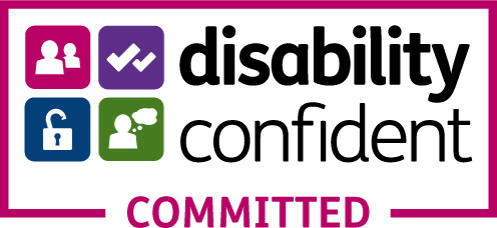The contractors’ guide to IR35 changes in 2021
There’s a lot of noise being made about IR35 at the moment, and the changes that will be introduced on 6 April 2021. Well, what’s it all about?
IR35 is a tax scheme which, in short, means contractors will have to pay more tax. Before IR35 came in, people who owned their own limited companies were better off from a tax point of view in three ways. This meant the state was potentially losing out on many hundreds of millions of pounds in tax revenue.
This is set to change, so today we’re going to discuss the purpose behind IR35, how it works, and how you can best prepare.
What is IR35?
IR35 is a tax scheme that affects contractual workers who operate through an intermediary, usually a limited company, to offer and provide services to an end business, but who would be deemed a full-time employee if they did not work through such intermediary.
These workers are defined by the HMRC as ‘disguised employees’. This means that such employees may be awarded the same rights and benefits that a full-time employee has, but who aren’t paying the tax to reflect their position.
HMRC will now be running checks on such individuals to discover whether or not they have been using their limited company status to avoid paying the higher tax and national insurance that a permanent employee is subject to.
If these individuals are found to be inside IR35, they will have to pay HMRC what is deemed unpaid tax and national insurance.
The difference between being inside IR35 and outside it
Being inside IR35 simply means that the contractor is subject to PAYE, and is expected to pay the correct amount of tax and national insurance that a permanent employee would have deducted from their pay cheque.
Should the contractor then be investigated by HMRC and found to be inside IR35 when they have claimed to be outside, they could potentially face a penalty charge to cover the unpaid income tax and national insurance.
If a contractor is deemed to be outside IR35, then they would be operating legitimately as a limited company. The responsibility for determining the right amount of tax to pay then falls to the contractor.
Does IR35 apply to you?
It’s crucial to know if IR35 applies to you before it comes into effect because it can really affect how you are treated and behave within a business.
Here is the criteria that HMRC use to determine whether or not IR35 applies:
1. Substitution: If the contractor or the end business is able to send a substitute to complete works in the contractors’ place, this suggests the contractor isn’t providing a personal service, and the worker isn’t a disguised employee.
2. Control: If an end business controls the workload of the contractor or how the work is carried out, it suggests the person is inside IR35 as they are not providing a specialist service as a contractor.
3. Mutuality of obligation (MOO): If both parties pass the above tests, it is unlikely that MOO applies as it will be deemed outside IR35 anyway. MOO can be present in both contracts of service and contract for service.
4. Risk: If a contractor can make a profit or a loss i.e. financial risk this would suggest that the contractor is outside IR35.
What is changing?
2017 saw a significant update in the legislation, and in April 2021 we will see further changes as the government continues to crack down on perceived tax avoidance through intermediaries.
Here are the two key changes being implemented in April 2021:
- If a contractor is suspected to be inside IR35 when they have claimed they are outside IR35, then they open themselves up to be investigated by HMRC, and an investigation can be backdated by up to six years. Any owed tax from that period will be claimed back by the Government.
- The onus will no longer lie solely with the contractor for the determination of its employment status and the correct level of tax. Responsibility will now sit equally with the contractor and the end user client. This means that if an error has been made, any unpaid tax can be collected from both parties.
For this reason, it’s recommended that contractors use HMRC’s employment test tool prior to undertaking any new contract to best protect themselves.
Preparing for the April 2021 IR35 changes
These changes may feel overwhelming if you don’t have a great amount of comfort with tax law and its associated implications, but there are things that you can do to prepare. We suggest these action points as a starter for businesses.
Seek support
If you haven’t already started preparing for IR35, now is the time. In order to manage the associated risks with the changes, it’s time to have a good look at them whilst auditing your current position.
Learning from what others have done will really help you here. Are there any local business hubs you can tap into to work through it together?
Talk it through
Communication, as always, is key. By talking with key stakeholders, you can ensure that you’re all on the same page about IR35. Discuss the changes with your contractors, including options moving forward.
It is also key that any intermediaries such as your recruiters are kept in the loop about the decisions you are making. They can also be useful in helping identify the status of your assignments as there will invariably be some occasions where it’s not cut and dry.
The ultimate goal is to reach a point where you can utilise a blended model when it comes to developing your workforce. This approach is being referred to as the ‘Build, Borrow, Buy’ approach.
Sort yourself out
Your finance, HR, and procurement teams will be key in the lead up to and management of the longer-term impacts of IR35. You must all be able to lean on each other during this transition. Start planning the processes that will support your new workforce model. You must also ensure that you maintain a strong working relationship with your recruitment partners to ensure they are working to support your new business objectives.
We’re here for you
It all seems a bit scary, but with adequate preparation, you can navigate this change ahead of the curve and by the time 6 April rolls around, you’ll be ready.
If you need advice and support, here at Supertemps we’re looking at this situation all the time in the run up to the law coming into play. We also have a stellar pool of talent should your business all of a sudden have new staffing needs. Contact us to chat through your options.
Our Awards and Accreditations













 03333 235 900
03333 235 900 Login / Register
Login / Register
